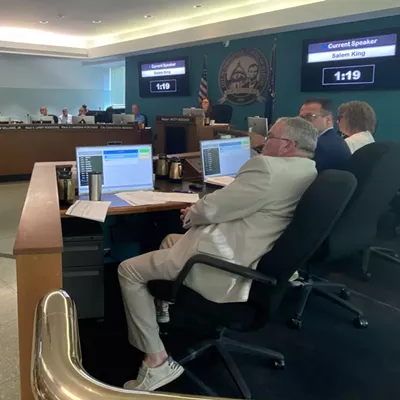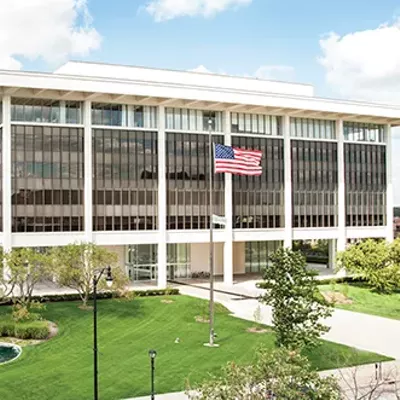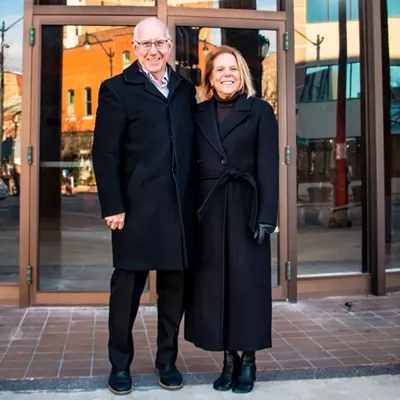By Brian McCurdy
Research shows that only one out of every three Americans has an advance directive in place, documenting their end-of-life and health care wishes. Though death is a topic many of us would rather not consider, it is a reality we all face. Choosing to empower ourselves at the end of life may involve hard conversations, but it is worth it.
What is advance care planning?

When people discuss advance care planning, they are referring to the general process of planning for your future medical care in the event that you are unable to make your own health care decisions. Advance care planning is not a single discussion; it is ongoing, over a lifetime as your goals and values change.
This planning process results in something called an advance directive, a general term for any document that contains instructions pertaining to a person’s wishes around medical treatment. Illinois law allows a few types of advance directives including a health care power of attorney, a living will and a Do-Not-Resuscitate (DNR)/Practitioner Orders For Life-Sustaining Treatment (POLST).
These documents can be (but are not required to be) reviewed by an attorney, shared with loved ones, revisited throughout the years, and most importantly - should be driven completely by you.
Many forms and templates for planning are available online for free or a nominal fee. Nonprofit organization Compassion & Choices offers free planning resources to get the process started, at http://candc.org/advance-plan.
Why should I have an advance directive? Advance care planning is crucial to ensuring that future medical treatments align with your individual beliefs and values, mitigates bias to ensure you get the full breadth of care you want and protects you against excessive, unwanted treatment.
Many of us have stories of loved ones whose families were left frozen in fear, with incredible amounts of uncertainty before their death. We hear devastating things like, “Nobody was sure what Mom or Dad wanted,” or “We didn’t talk about death in our family.” This documentation helps your care providers and loved ones make the most informed decisions for you, rather than leaving them contemplating agonizing choices in crisis or in conflict instead of being with you at life’s end.
Where do I start? Advance care planning should always begin with identifying your priorities around health and medical treatment. Your wishes may be shaped by your experiences, cultural and religious views, your values and your goals.
To understand your options, it is important to talk with your health care provider and identify the types of decisions that often need to be made at the end of life. This may include things like ventilation, life-sustaining treatment and other choices that must often be made quickly. Perhaps you want to pursue every single treatment option available to you. Or maybe your wishes would change depending on the reason for your hospitalization; for instance, the treatment you want in the case of an accident may differ from what you want in the case of a terminal illness.
Early in your process, you will want to identify a health care power of attorney (sometimes called a health care proxy), who you will assign to make these decisions on your behalf in the case that you are unable to. This could be a loved one, but it should be noted that you may not want to choose a close relative or spouse if you know it would be too difficult for them. Ultimately, this should be someone who you believe will take the responsibility seriously and advocate for you. They are your voice. If possible, include them in your exploration and planning process, so they can ask questions with you and fully understand your reasoning and wishes.
Can I be sure my advance directive will be followed? For various reasons, there are instances where these documents are not followed - due to access, outdated documentation, crisis or lack of communication. However, there are a few things you can do to prepare yourself, and your loved ones, as much as possible.
Once you have things written down, make copies of your documentation to share with your health care power of attorney, family members and physicians. You may also ask that your advance directive be included in your medical record. Consider going further and videotaping your wishes. Revisiting this document regularly and updating it as needed will ensure everyone knows it is valid and accurate.
You have the right to make these decisions, and in turn you empower yourself and your loved ones during a critical moment in time. I promise that starting the conversation now, no matter how hard, is worth it.
Brian McCurdy is co-leader of the Springfield Action Team for the nonprofit organization Compassion & Choices, offering community education around end-of-life planning and options. He can be reached at mr.brian.mccurdy@gmail.com.













